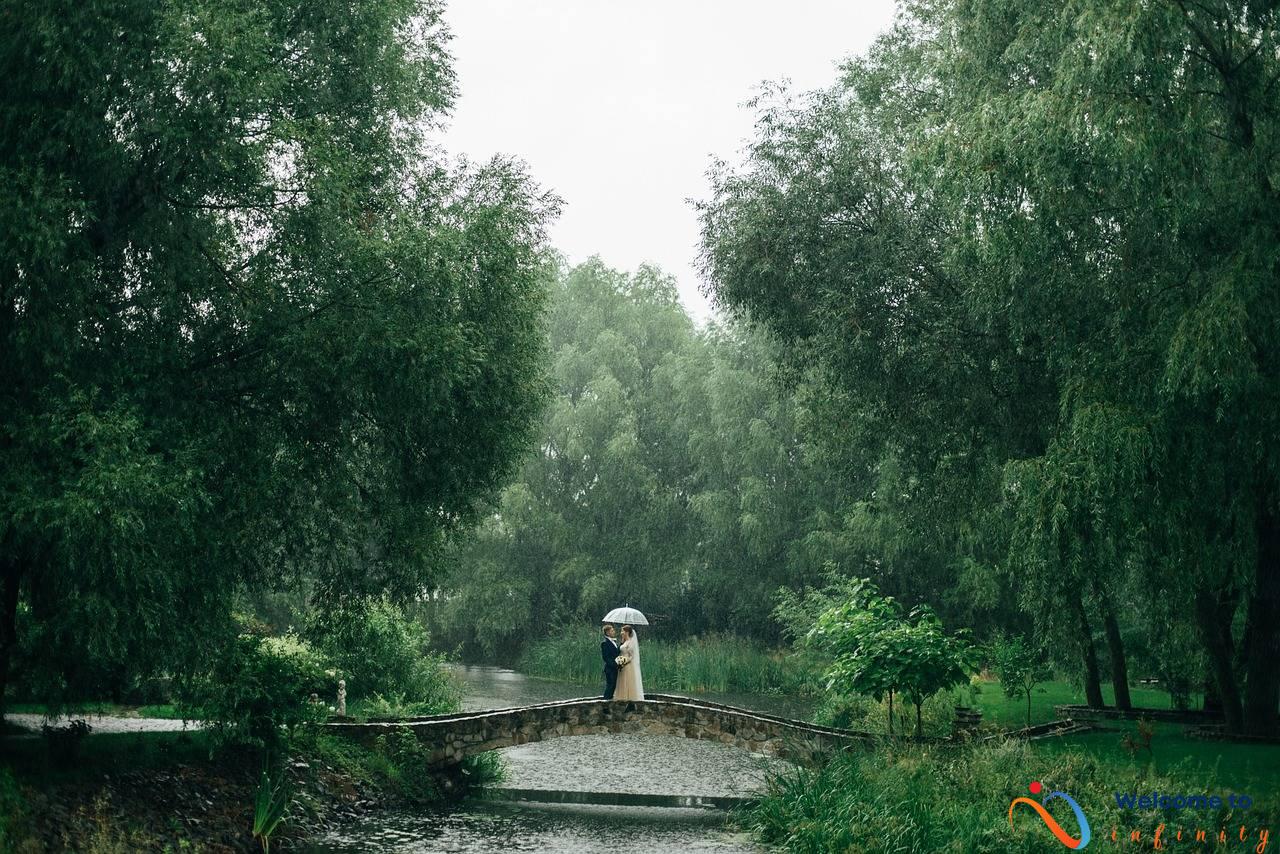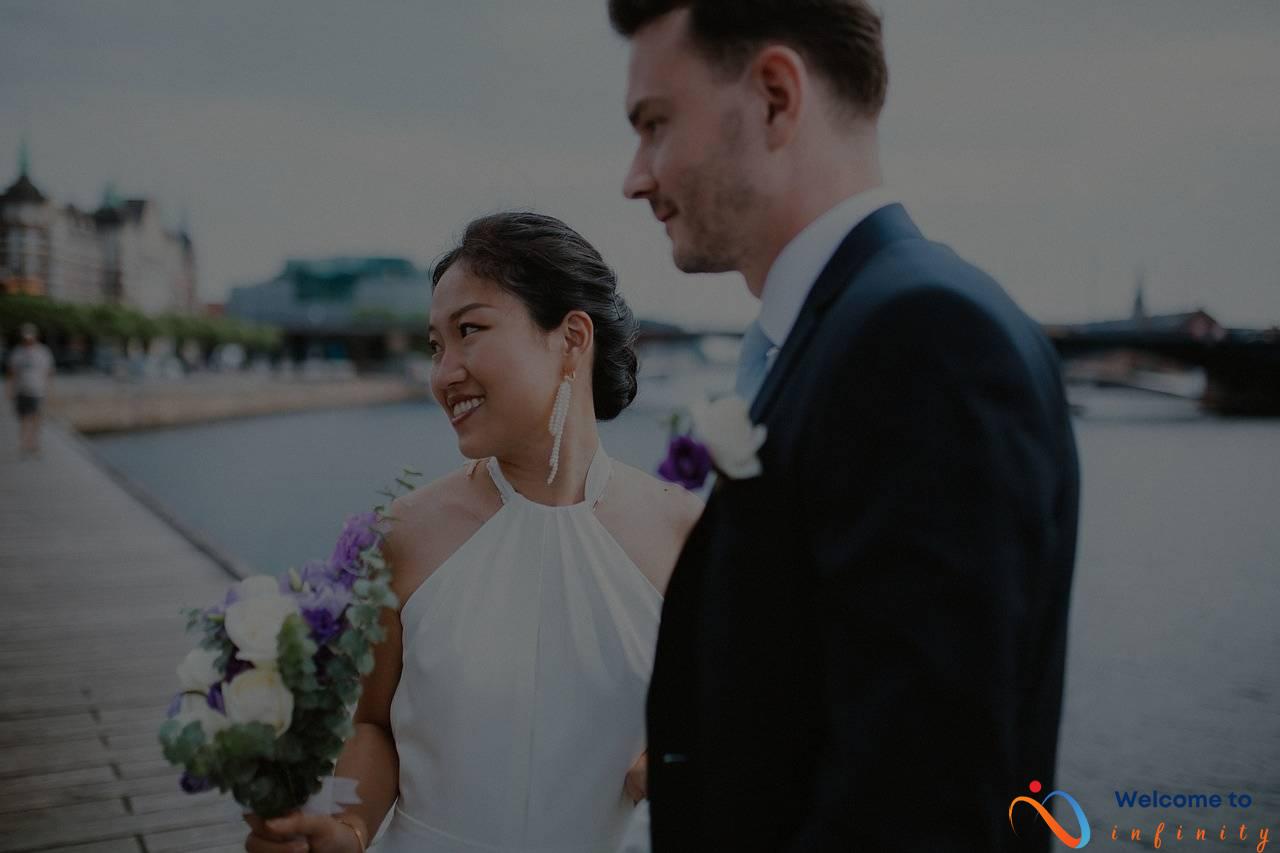If you're planning a destination wedding, congratulations! This is an exciting time, full of adventure and romance. However, it's important to remember that there are some etiquette guidelines you should follow to make sure your wedding is a success and your guests feel comfortable and included.
The most important aspect of planning a destination wedding is communication. Make sure you give your guests as much advance notice as possible about the location, date, and travel arrangements. Sending save-the-dates at least six to eight months in advance is recommended. You should also let your guests know about any group hotel rates or transportation arrangements you've made.
Another crucial element of destination wedding etiquette is being considerate of your guests' budgets. Remember that they'll be paying for airfare, hotel rooms, and possibly rental cars, so try to choose a location that's affordable and accessible. You may also want to consider hosting events like welcome cocktails, bridal party excursions, or farewell brunches to give your guests a chance to get to know each other and enjoy the destination.
Finally, it's important to be respectful of the local customs and culture of your wedding destination. Be sure to research any laws or regulations that may affect your plans (e.g. if you want to have a beach wedding, make sure it's legal to do so), and consider incorporating local traditions or cuisine into your celebration. This will not only give your guests an authentic experience but will also show that you respect the culture and history of your destination.
Invitations and Guest List
If you're planning a destination wedding, sending save-the-date cards to your guests well in advance is crucial. Your guests need ample time to book their travel arrangements and plan for the expenses of attending your big day.
When creating your guest list, keep in mind the cost of traveling and staying at the location. Not everyone will be able to afford the expense of traveling to a far-off location, so consider the financial situation of your guests when making your list.
In addition to providing information about the wedding location, it is important to give your guests clear information about any necessary travel arrangements. You may want to provide recommendations for airlines and hotels, as well as local transportation options.
Consider creating a wedding website that includes all the necessary information for your guests, such as travel information, accommodations, and things to do in the area. This will make it easier for your guests to plan their trip and stay organized leading up to your big day.
Attire
When deciding on attire for your destination wedding, it is important to consider the location and climate. You don't want your guests to be uncomfortably dressed for the weather or location. Provide information on the expected weather conditions and any activities planned that may require specific dress codes.
While it is important to keep your guests' comfort in mind, you'll also want to ensure that your wedding party looks cohesive. Consider providing a dress code if you have specific expectations for attire.
It's also a good idea to inform your guests of any local customs or traditions that may influence their attire choices. You don't want anyone accidentally offending locals or standing out in a negative way. This is particularly important if your wedding is taking place in a different country with a different culture.
Finally, make sure that the dress code is appropriate for the time of day. For example, a beach wedding may require lighter, more casual attire if it takes place during the day, while a formal evening wedding may require cocktail or black tie attire.
Travel and Accommodations
When you are planning a destination wedding, it is important to make sure your guests have a smooth travel experience. One way to do this is by providing them with all the information they need about local transportation and accommodations. You can create a list of local taxis, rental car agencies, and shuttle services that your guests can use to get around the area.
It is a good idea to consider negotiating group rates with hotels and airlines to make it easier and more affordable for your guests to attend your wedding. You can also provide a list of recommended hotels that are close to the wedding venue. Make sure to include information about room rates, room type, and any amenities that are available.
Your guests will likely be interested in exploring the area and enjoying local activities and attractions. You can create a list of popular tourist destinations, museums, and other attractions in the area. If you are not familiar with the area, you can do some research or reach out to a local tourism office for assistance.
- Provide clear information about local transportation options
- Negotiate group rates with hotels and airlines if possible
- Create a list of recommended hotels and room rates
- Suggest local activities and attractions for your guests to enjoy
By taking these steps, you can make your guests feel welcomed and comfortable during their stay for your destination wedding. Remember, happy guests make for a successful wedding!
Gifts and Registry
One of the most debated topics when it comes to destination weddings is whether or not it's appropriate to register for gifts. It is not necessary to provide a gift registry for a destination wedding. However, if you choose to have one, it is important to consider the logistics of transporting gifts back home.
A popular alternative to the traditional gift registry is a honeymoon fund. This allows guests to contribute towards the couple's trip, making it a more practical gift for a destination wedding.
Another great idea is to donate to a local charity as a wedding gift. This not only helps the community but also shows respect and appreciation for the area where the wedding is taking place.
If you do decide to have a gift registry, be sure to provide items that are easy to transport. Alternatively, you can have gifts shipped directly to your home. Inform your guests of any shipping instructions, such as providing a specific address or shipping deadline.
Remember, the most important thing is to enjoy your wedding day with your loved ones. Whether or not you have a gift registry, your guests will still want to celebrate your special day with you.
Wedding Ceremony and Reception
When planning your destination wedding ceremony and reception, it is crucial to keep in mind the location and customs of the area. Research the cultural traditions and customs of the location to ensure that you are respectful and do not offend anyone. Additionally, it is important to adhere to local laws and regulations to avoid legal issues on your big day.
Consider incorporating local cuisine into your reception menu to give your guests a taste of the region. It can be a memorable experience for them to try new and exciting dishes that they may have never had the opportunity to try before. Providing local entertainment is another way to showcase the unique culture of the area and give your guests a once-in-a-lifetime experience.
Keep in mind that some regions may have different wedding customs than what you are used to. It is important to educate yourself on these customs and incorporate them into your ceremony and reception as much as possible. This is a way to incorporate the local culture and make your wedding unique and meaningful.
Thank You Notes and Post-Wedding Etiquette
Once the wedding is over, it is essential to show your gratitude towards your guests by sending thank you notes as soon as possible. It is polite to thank your guests for making the effort to travel to your destination wedding and for their kind gifts. Handwriting thank you notes can add a personal touch and make the gesture more meaningful.
You can also consider sending out postcards or small gifts to your guests to show your gratitude. Postcards with a picture of the location or a special moment during the wedding can be a thoughtful and memorable idea. Small gifts such as local souvenirs or handmade items can also be a great way to thank your guests.
If there are any local customs or traditions associated with post-wedding celebrations, such as a farewell brunch or dinner, it is important to inform your guests about them. This will help your guests to plan their travel arrangements accordingly and participate in these events. It is also a good opportunity for them to experience the local culture and custom.
In addition, acknowledging the efforts of your vendors and suppliers by sending them a thank-you note or gift can leave a lasting impression and strengthen your relationship with them for future events.
In summary, expressing your gratitude towards your guests and vendors is a crucial part of post-wedding etiquette. Sending thank you notes, postcards, or small gifts in a timely manner and informing your guests of any local celebrations will show your appreciation and make them feel valued.











